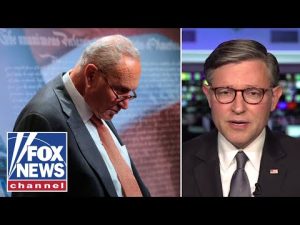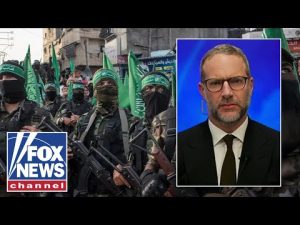In today’s complex geopolitical landscape, the art of negotiation and diplomacy has taken center stage once again. The world is now witness to an intriguing development involving President Trump’s special envoy, who is tirelessly engaging in what can only be described as high-stakes diplomacy. Their efforts have brought together leaders from Israel and Qatar in a bid to secure the release of hostages held by Hamas. It seems the promise of peace and resolution is dangling tantalizingly close, like a carrot in front of a carrot-loving rabbit.
The plan, which has been labeled a “20-point deal,” is a testament to the skillful chess game of international negotiations. However, the message to Hamas is blunt and clear: the current offer is as good as it’s going to get, and there’s no room for debate. One could almost hear the enthusiasm and ironclad determination in the envoy’s voice as he emphasized the historic opportunity presented. After all, who would want to be the party pooper in this momentous global gathering?
Reflecting on the emotional returns of hostages like Emir Amira, who was snatched from danger in Afghanistan and welcomed home after 724 harrowing days, it’s hard to overstate the sheer weight this mission carries. This is more than just a political maneuver; it’s about bringing sons and daughters, friends and colleagues, back to their families. It’s not surprising that these personal stories put a human face on what’s otherwise often just numbers or political scorecards.
Now, with a comprehensive plan laid out for Hamas, expectations are high. The envoy has made it apparent that the clock is ticking. The world waits with bated breath for the anticipated release of hostages, which, if achieved, would serve as a monumental victory for diplomacy over brute force. The stakes couldn’t be higher: conceal your intent, and risk being left behind on the wrong side of history.
Ultimately, this 20-point proposal is a beacon of hope not just for those involved directly but also for global watchers keen on witnessing a rare diplomatic triumph. Bold and challenging decisions lie ahead, but as the envoy notes, the U.S. leadership is ready to be both peacemakers and enforcers. This is a moment where everyone wins, or as close to it as geopolitics allows. Meanwhile, the suspense builds—is a lasting peace within reach, or will we be left wondering why the offer, gift-wrapped and handed over, wasn’t grasped with both hands?







